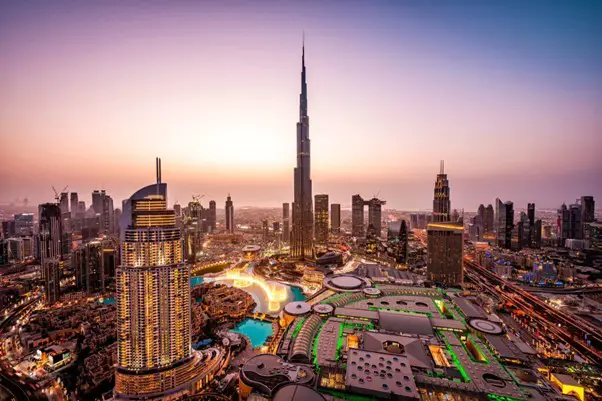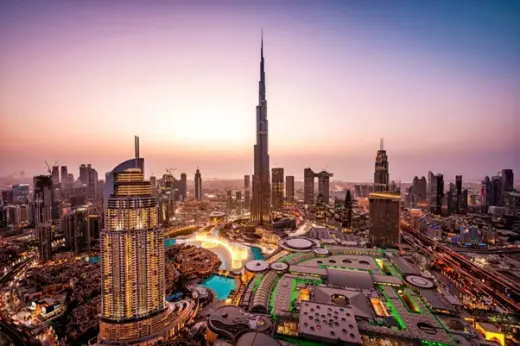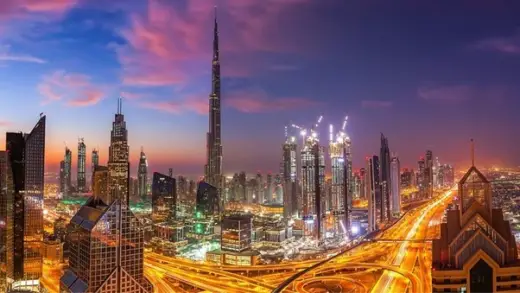UAE real estate current state and future prospects, United Arab Emirates property guide
UAE real estate current state and future prospects
17 March 2023
Introduction – Exploring the Current State and Future Prospects of Real Estate in the UAE
The real estate market in the United Arab Emirates (UAE) has experienced significant growth and development over the past decade, with a number of ambitious projects and innovative designs transforming the skyline of major cities such as Dubai and Abu Dhabi. In this article, we will provide a comprehensive overview of the current state and future prospects of the UAE real estate market everhomes.ae. Our aim is to examine the key trends, drivers, and challenges affecting the sector, and to offer insights and recommendations for investors and stakeholders looking to navigate this dynamic and rapidly evolving market.
Current State of Real Estate in the UAE
Overview of the current United Arab Emirates market trends and conditions:
- The UAE real estate market has seen a recovery in recent years, with increasing transaction volumes and prices across various segments.
- However, the market still faces challenges related to oversupply, affordability, and changing buyer preferences.
Analysis of key indicators such as supply, demand, pricing, and rental yields:
- Supply: The market has seen a surge in supply in recent years, particularly in Dubai. However, there are indications that new project launches are slowing down.
- Demand: The market has seen a gradual increase in demand, particularly from expatriates and foreign investors. However, demand remains subdued in some segments and locations.
- Pricing: The market has seen some stabilization in pricing, particularly in prime locations. However, prices continue to be under pressure in some areas, particularly in the mid-market segment.
- Rental Yields: Rental yields have been declining in recent years, particularly in the residential segment. However, there are indications that yields are stabilizing in some locations.
Examination of different segments (residential, commercial, retail, etc.) and locations (Dubai, Abu Dhabi, etc.):
- Residential: The residential segment has seen a gradual recovery in recent years, particularly in the high-end and luxury segments. However, the mid-market segment continues to face challenges related to oversupply and affordability.
- Commercial: The commercial segment has seen mixed trends, with demand for office space remaining subdued while the hospitality and industrial segments have seen growth.
- Retail: The retail segment has faced challenges related to oversupply and changing consumer preferences, particularly in traditional shopping malls.
- Locations: Dubai and Abu Dhabi continue to be the main hubs of real estate activity in the UAE, with other emirates such as Sharjah and Ras Al Khaimah also seeing some growth in certain segments.
Factors Driving Real Estate Demand in the UAE
Discussion of the key factors driving the demand for real estate in the United Arab Emirates:
- Expatriate population: The United Arab Emirates has a large expatriate population, particularly in Dubai and Abu Dhabi, which has been a key driver of demand for residential and commercial real estate.
- Economic growth: The UAE has a diversified and growing economy, with sectors such as tourism, trade, and finance contributing to demand for commercial real estate.
- Infrastructure development: The UAE has invested heavily in infrastructure development, including transportation networks, healthcare facilities, and cultural amenities, which has boosted demand for real estate in certain locations.
- Safe haven status: The UAE is seen as a safe haven for investment, particularly for investors from the Middle East, Asia, and Europe, which has contributed to demand for real estate as a tangible asset.
Analysis of the impact of government policies, demographics, economy, and global events on the real estate market:
- Government policies: The United Arab Emirates government has implemented a range of policies to support the real estate sector, including initiatives to boost demand, ease regulations, and promote sustainability.
- Demographics: The UAE has a young and growing population, particularly in Dubai, which is expected to drive demand for residential real estate in the long term.
- Economy: The UAE economy is sensitive to global events, particularly fluctuations in oil prices, which can impact demand for real estate.
- Global events: The COVID-19 pandemic has had a significant impact on the UAE real estate market, with changes in buyer preferences, work-from-home policies, and travel restrictions affecting demand for different segments and locations.
Challenges Facing the UAE Real Estate Market
Identification of the challenges facing the real estate market in the UAE:
- Oversupply: The UAE real estate market has faced a significant oversupply of properties, particularly in Dubai, which has put pressure on prices and rental yields.
- Affordability: Despite some stabilization in prices, real estate in the UAE remains relatively expensive, particularly for middle-income buyers and renters, which has dampened demand in some segments and locations.
- Regulatory changes: The UAE government has implemented a range of regulatory changes in recent years, including new visa regulations and property registration requirements, which have impacted the real estate market.
- Geopolitical risks: The UAE is exposed to geopolitical risks such as regional conflicts, changing trade policies, and diplomatic tensions, which can impact investor sentiment and demand for real estate.
Discussion of issues such as oversupply, affordability, regulatory changes, and geopolitical risks:
- Oversupply: The oversupply of properties in the UAE has led to a decline in prices and rental yields, particularly in the mid-market segment. However, there are indications that new project launches are slowing down, which could help to rebalance supply and demand in the long term.
- Affordability: The high cost of real estate in the UAE has made it difficult for middle-income buyers and renters to access the market, particularly in Dubai. The government has implemented initiatives to promote affordable housing, but more needs to be done to address the issue.
- Regulatory changes: The UAE government has implemented a range of regulatory changes to promote transparency and stability in the real estate market, but these changes have also created some uncertainty and administrative burden for investors and stakeholders.
- Geopolitical risks: The UAE is exposed to a range of geopolitical risks, including regional conflicts, changing trade policies, and diplomatic tensions. These risks can impact investor sentiment and demand for real estate, particularly in the luxury segment.
Future Prospects for Real Estate in the UAE
Analysis of the outlook for the UAE real estate market in the short and long term:
- Short term: The UAE real estate market is expected to face some challenges in the short term, particularly due to the COVID-19 pandemic and oversupply issues. However, the market is expected to gradually recover as economic activity resumes and demand picks up.
- Long term: The UAE real estate market is expected to benefit from the government’s long-term vision for sustainable economic growth and diversification. This includes investment in infrastructure, tourism, and innovation, which could drive demand for real estate in certain segments and locations.
Discussion of potential opportunities and threats for investors and developers:
- Opportunities: There are several opportunities for investors and developers in the UAE real estate market, particularly in emerging segments such as affordable housing, sustainability, and innovation. The government’s support for these areas could provide a favorable investment climate.
- Threats: However, there are also several threats that could impact the real estate market, such as oversupply, changing regulations, geopolitical risks, and economic volatility. These factors could create uncertainty and reduce investor confidence.
Examination of emerging trends such as sustainability, technology, and innovation in real estate:
- Sustainability: The United Arab Emirates government has launched several initiatives to promote sustainable development, including the Dubai Clean Energy Strategy 2050 and the Abu Dhabi Vision 2030. These initiatives are expected to drive demand for sustainable real estate and technologies.
- Technology: The UAE is investing heavily in technology, particularly in areas such as smart cities, artificial intelligence, and blockchain. These technologies could transform the real estate sector, particularly in terms of efficiency and customer experience.
- Innovation: The UAE government is promoting innovation in several areas, including real estate, through initiatives such as the Dubai Future Foundation and the Dubai Innovation District. This could drive the development of new products and services in the real estate market.
United Arab Emirates Real Estate Trends Conclusion
In conclusion, this article has provided a comprehensive analysis of the current state and future prospects of the United Arab Emirates property market. We have examined key market trends, drivers of demand, challenges facing the market, and emerging opportunities and threats.
Despite the challenges facing the market, such as oversupply and affordability issues, there are still several opportunities for investors and developers, particularly in emerging segments such as sustainable and affordable housing. In addition, the government’s long-term vision for economic growth and diversification, along with its support for technology and innovation, could provide a favorable investment climate in the long term.
To succeed in the UAE real estate market, investors and stakeholders should stay informed about market trends and regulations, and adopt a strategic approach that aligns with the government’s long-term vision for sustainable growth.
Comments on this guide to UAE real estate current state and future prospects article are welcome.
Buildings
Key Buildings in Scotland Articles – architectural selection below:
Historic Glasgow : best Glasgow architecture of the past
Comments / photos for the UAE real estate current state and future prospects advice page welcome


